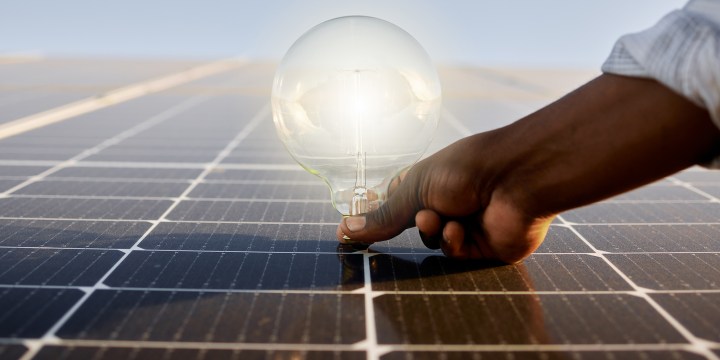As thousands of South Africans switch to alternative power supply systems, municipalities have warned of the potential fire risks. And insurers are unlikely to pay out claims if your installation was not approved by your municipality.
The Cape Town municipality’s Fire and Rescue Service says the increased use of items such as solar installations, generators and inverters powered by rechargeable batteries has caused the department to revisit its incident management playbook.
“While these devices are fulfilling a crucial role in keeping users’ lights on, and keeping their businesses going during load shedding, users are also reminded that they can pose a risk if not installed, stored or utilised properly. In fact, systems that are not installed properly, safely and legally are one of the largest contributors to extended power outages,” says the City of Cape Town.
To minimise the potential damage, municipalities require all solar PV and/or battery systems to be installed by a competent installer who must provide a Certificate of Compliance. All systems that are connected to the wiring of the building must be registered with the City of Cape Town before installation and, from October, only city-approved inverters will be accepted for these systems. This is to reduce the risk of electrocution of those working on electrical grids and also to speed up the solar system authorisation turnaround time.
Speaking at a Daily Maverick webinar recently, Christelle Colman, the co-founder of Ami Underwriting Managers, said more fire-related claims are coming through now as solar installations increase.
“The last thing you need in that scenario is to have your house burn down and realise that it was the result of a faulty solar installation,” Colman warned.
Ernest North, the chief executive of Naked Insurance, says if you are being a reasonably responsible person by making sure your generator is serviced or your electrical wires are installed by a professional, then you have little to worry about.
“However, if you are using a guy down the road to install your solar panels and inverter or you are overloading a plug point, and your house burns down as a result, your claim is likely to be rejected,” North said.
The City of Cape Town reports that recent incidents the Fire and Rescue Service has dealt with include:
- Four people overcome by fumes from a generator in Parow, with one death.
- A gas explosion at a home in Hout Bay that was caused by the gas source not being switched off and resulted in one person sustaining burn wounds.
- A fire on a truck transporting lithium-ion batteries. Firefighters managed to prevent the fire from spreading to the trailer, avoiding a major hazard.
- The batteries on an inverter in a store within a mall ignited, resulting in the mall having to close its doors while the incident was attended to.
- Solar panels on a factory roof caused the wires to arch, resulting in a fire. Firefighters had to wait for technicians to isolate the panels before they could extinguish the fire.
- A firefighter was called to extinguish a fire at a neighbouring property after a battery bank overheated because of insufficient ventilation.
The Mayoral Committee member for safety and security, JP Smith, says while the city appreciates that residents want to protect themselves from the impacts of load shedding, the incidents highlight the need to be cautious and vigilant about how energy solutions are used and stored.
“Ventilation is a key consideration, because of the risk of noxious gases from the use of petrol or diesel, but there is also the very real risk of devices overheating and catching fire. In the event of a fire, these new-age batteries also require very specific firefighting methods, so households and businesses need to ensure that they have the correct fire extinguishers on hand for their specific needs,” he says.
Electrical equipment not switched off before the power comes back on after load shedding, and incorrectly installed or unapproved solar PV and/or battery systems increase the risk of circuits tripping and fire hazards.
What you can do to ensure your rooftop solar PV installation is safe
- Ask if the solar PV service provider has substantial experience, with references.
- Ask whether the solar PV service provider designed, supplied and installed the system or only carried out one or two of these steps.
- The PV service provider should be accredited with a third-party quality assurance programme such as a PV Green Card-endorsed programme with the South African Photovoltaic Industry Association (Sapvia) or the P4 Platform quality assurance programme.
- The installer must apply to the city to authorise the system for grid connection to ensure the safety of the electrical network, your home and all who work on the electrical grids.
- If city staff and contractors do not know about systems connected to the grid, they run the risk of electrocution.
- Authorisation must be obtained in writing from the city before installation.
- Get a structural engineering assessment — make sure your roof can withstand the weight and wind load of solar PV panels where necessary.
- You will need building plans approved if the panels protrude more than600mm above the highest point of the roof, or are raised more than 1.5m above any point on the roof, or if ground-mounted, the panels in their installed position project more than 2.1m above the natural/finished ground level. DM
Content retrieved from: https://www.dailymaverick.co.za/article/2023-07-11-make-sure-your-solar-installation-has-municipal-approval-to-avoid-getting-burnt-by-insurers/.

